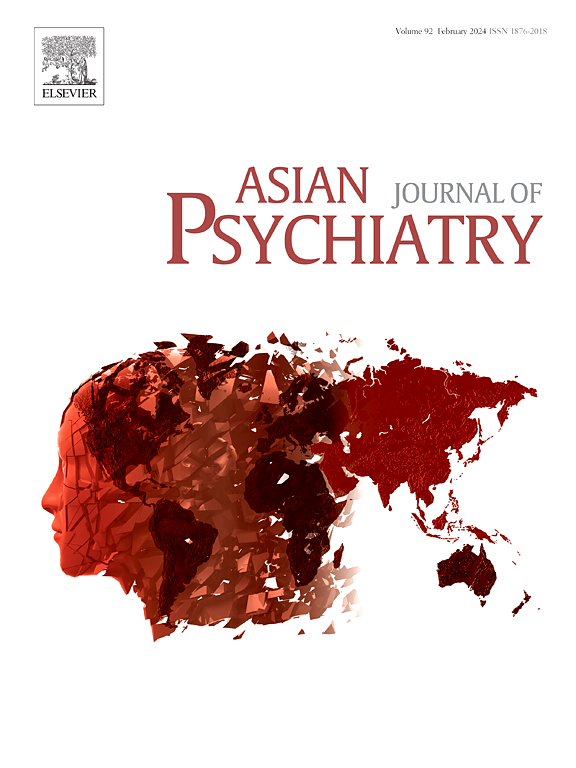Dissociation and substance abuse among people with PTSD: Results from the National Survey for Stress and Health in Japan
IF 3.8
4区 医学
Q1 PSYCHIATRY
引用次数: 0
Abstract
Patients with posttraumatic stress disorder (PTSD) usually have other psychiatric comorbidities. This study analyzed data from a national survey in Japan (N = 1005 trauma-exposed adults) and examined co-occurring dissociation and substance abuse in patients with probable PTSD. Participants completed standardized screening measures of PTSD, dissociative symptoms, and substance abuse at baseline (T1), and then reported their levels of substance abuse again after 3 months (T2). Of participants who screened for PTSD at T1 (n = 639), 36.1 % reported dissociative symptoms, and 61.8 % reported substance abuse in the past two weeks. Participants with dissociative PTSD had significantly higher levels of substance abuse at both T1 and T2 than their non-dissociative counterparts. T1 dissociative symptoms significantly predicted T2 substance abuse (β =.075, p = .006). Dissociative symptoms also moderated the effects of T1 PTSD symptoms on T2 substance abuse. This study provides first data regarding the prevalence of dissociative symptoms and substance abuse among Japanese adults with PTSD. We also found that people with dissociative PTSD were more prone to subsequent substance abuse problems. Early screening for dissociative symptoms among people with PTSD is important. Future studies are needed to investigate the neural mechanisms behind dissociation and substance abuse.
求助全文
约1分钟内获得全文
求助全文
来源期刊

Asian journal of psychiatry
Medicine-Psychiatry and Mental Health
CiteScore
12.70
自引率
5.30%
发文量
297
审稿时长
35 days
期刊介绍:
The Asian Journal of Psychiatry serves as a comprehensive resource for psychiatrists, mental health clinicians, neurologists, physicians, mental health students, and policymakers. Its goal is to facilitate the exchange of research findings and clinical practices between Asia and the global community. The journal focuses on psychiatric research relevant to Asia, covering preclinical, clinical, service system, and policy development topics. It also highlights the socio-cultural diversity of the region in relation to mental health.
 求助内容:
求助内容: 应助结果提醒方式:
应助结果提醒方式:


